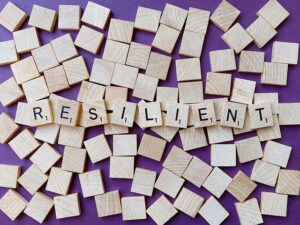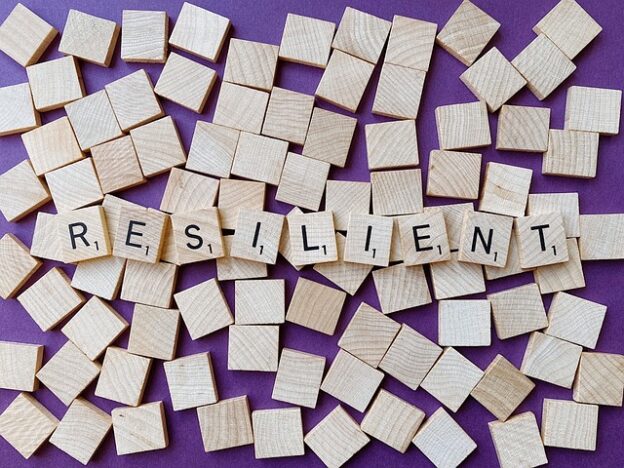I’m pleased to share some ideas for overcoming adversity and rebounding from life’s hardships with you.
Resilience is an important talent that may help us negotiate life’s ups and downs, and it is something that everyone can learn with practise. At its essence, resilience refers to our ability to adapt to and recover from adversity.
Developing resilience may help us stay strong in the face of adversity, whether it’s dealing with a personal setback, managing with stress at work, or facing a worldwide crisis like the one we’re presently experiencing.
In this post, we’ll look at several tried-and-true tactics for building resilience that you can start applying right away to help you overcome obstacles and emerge stronger on the other side. So let’s get this party started!
Understanding the Importance of Resilience
 Resilience is the ability to withstand adversity, recover from setbacks, and prosper in the face of hardship. It is an important characteristic that can help people handle life’s ups and downs more easily.
Resilience is the ability to withstand adversity, recover from setbacks, and prosper in the face of hardship. It is an important characteristic that can help people handle life’s ups and downs more easily.
The power of resilience rests in its ability to build strength and establish coping strategies that allow us to endure in the face of adversity.
When dealing with trauma or severe life situations, resilience is very vital. Stories of triumph and endurance reveal how resilient people are better able to deal with adversity. When faced with a traumatic event, resilient people are more likely to recover faster, cope more successfully, and ultimately prosper in the long run.
It is vital to emphasise that resilience is not a fixed quality; rather, it may be learnt and increased over time through practise. Building resilience can be accomplished through a variety of ways, including creating a positive mentality, practising self-care, receiving support from loved ones, making attainable objectives, and learning from prior experiences.
Developing resilience, in essence, necessitates a mix of abilities and attitudes that allow us to face problems with a growth mentality. Anyone, with dedication and effort, may learn to harness their inner power and create resilience in the face of life’s challenges.
Fostering a Growth Mindset
A growth mindset is the concept that one’s abilities and intelligence may be improved through hard effort and devotion. Individuals with this mindset are able to embrace challenges and see failure as an opportunity to learn and progress. When faced with hardship, those with a growth mentality are more likely to persevere and eventually succeed.
Accepting obstacles is an important part of establishing a growth mentality. Rather of avoiding unpleasant activities, people with this perspective view them as opportunities for progress. They recognise that the route to success is not always simple, but they are willing to put in the effort necessary to overcome hurdles.
Another crucial part of building a development mindset is learning from mistakes. Those with this perspective see failure as an opportunity to learn from their mistakes and better their approach, rather than an end result. They use failure feedback to adjust their methods and move forward towards success.
Incorporating these tactics into daily life can assist people in developing resilience and overcoming adversity. Individuals can build a growth mentality by accepting difficulties and learning from setbacks, allowing them to bounce back when faced with hurdles. Anyone may build this powerful mentality and achieve their goals with dedication and hard effort.
- Set Goals: Create specific objectives for what you want to accomplish. This will help you focus your efforts and offer you direction.
- Take Action: Every day, take modest actions towards your goals. Over time, consistent effort will result in progress.
- Celebrate Progress: Recognise and celebrate your minor victories along the way. This will help you stay motivated and develop momentum towards your long-term objectives.
Positive Coping Mechanisms Development
Consider this: a life without stress or challenges. Doesn’t that seem like a dream come true? Unfortunately, that is not feasible. Life can be difficult, and everyone faces difficulties at some point. However, how we deal with these difficulties defines our amount of resilience.
Mindful breathing is a powerful technique to create positive coping skills. When we are stressed, our breathing becomes shallow and fast, exacerbating the situation. We may relax our minds and bodies by taking slow, deep breaths and focusing on the present moment. In difficult situations, this allows us to think more clearly and make better decisions.
Creative expression is another useful strategy for developing resilience. Engaging in a creative outlet, whether through writing, painting, or music, can help us process emotions and release stress. It also enables us to tap into our inner capabilities and come up with innovative solutions to issues.
We may cultivate a more resilient mindset by including mindful breathing and creative expression into our everyday practise. Instead of feeling overwhelmed by obstacles, we will be equipped to overcome them stronger than ever before.
Keep in mind that developing resilience requires time and effort. It won’t happen fast, but with constant practise and determination, you’ll start to notice improvements in your capacity to withstand hardship.
So take a deep breath, grab a paintbrush or pen, and get to work – you’ve got this!
Building Stable Support Systems
Positive coping mechanisms are an important aspect of developing resilience. It enables people to properly deal with stress and overcome hardship. However, relying exclusively on individual techniques to recover from adversity is insufficient. Building solid support systems is also essential for cultivating resilience.
Creating boundaries is one method to develop a strong support system. This includes understanding when to say no and limiting what you can do for others without jeopardising your own well-being. You are taking care of yourself and avoiding burnout, both of which might impair your ability to be resilient.
Seeking professional assistance is another method to develop a support system. Sometimes we require more than simply the love and support of family and friends. Seeking assistance from mental health specialists can give us with the tools and resources we need to deal with issues more effectively. This can include treatment, counselling, or medication to help us on our quest to better mental health.
Finally, developing a strong support system is being proactive in reaching out to others for assistance when needed. This includes actively pursuing relationships with others who share your values or interests, as well as looking for mentorship opportunities or joining social groups that promote healthy habits and practises.
In summary, creating a solid support system is as important as cultivating healthy coping methods. Setting limits, obtaining professional assistance, and reaching out to others are all important stages towards accomplishing this aim.
Remember that resilience does not imply being able to recover fast from adversity, but rather the ability to adjust positively throughout time despite hurdles encountered along the path.
Exercises in Self-Care and Self-Compassion
Self-care and self-compassion, like a soothing balm on a wound, can help you heal from the emotional anguish of adversity. Rather than beating yourself up about circumstances over which you have no control, it is crucial to be kind to yourself through stressful times. You can build resilience and bounce back stronger if you prioritise your well-being.
Journaling is one approach to practise self-care. Writing down your emotions and thoughts might help you analyse them and acquire clarity on what’s upsetting you. Journaling also has the added benefit of lowering stress and increasing general mental wellness.
Set aside some time each day to jot down your thoughts in a notepad or digital journal.
Mindful meditation is another great strategy for increasing resilience. This entails focusing your attention without judgement on the current moment, allowing you to become more aware of your thoughts and feelings without becoming engrossed in them. Mindful meditation has been demonstrated to lessen anxiety and depression symptoms while increasing emotions of serenity and well-being.
Remember that self-care and self-compassion are not selfish; they are vital for resilience and overcoming adversity. You’ll be better prepared to face whatever obstacles come your way if you take care of yourself both physically and emotionally.
Incorporate these tactics into your everyday routine so they become habits that will help you through the ups and downs of life.
What Are Some Common Resilience Myths?
Overcoming resilience hurdles is difficult, but common myths make it even more difficult.
One of the most prevalent beliefs is that resilient people do not require assistance or support from others. The truth is that everyone requires assistance at times, and seeking assistance is a show of strength, not weakness.
Another common misconception is that resilience entails constantly remaining cheerful and never experiencing negative emotions such as sadness or fear. Instead of suppressing their feelings, resilient people acknowledge and process them in healthy ways.
Finally, some people feel that resilience is something you either have or don’t have, whereas it is a set of abilities and behaviours that can be cultivated over time through intentional practise.
We can all take steps towards increased resilience in our lives by knowing and refuting these fallacies.
How Does Trauma Affect Resilience Development?
Trauma can have an impact on a person’s ability to develop resilience.
Trauma can create major barriers and make overcoming hardship difficult.
It is critical to recognise that the process of developing resilience is not linear and that each person’s journey is unique.
Individuals can, however, learn strategies to cope with traumatic experiences and create a sense of strength and resilience with dedication and assistance.
Overcoming hardship takes time and patience, but it is attainable for everyone willing to work hard.
Is it possible to learn resilience, or is it innate?
Developing resilience is an important ability that can help people withstand hardship and recover from setbacks.
While some may claim that resilience is a natural attribute, research has demonstrated that anyone with the appropriate mentality can learn and build it.
Indeed, the role of mentality in developing resilience cannot be emphasised.
Individuals who believe in their abilities to deal with stress and setbacks, as well as those who see problems as chances for growth, are more likely to acquire the resilience required to thrive amid adversity.
Anyone can learn to establish a resilient attitude and develop the abilities needed to overcome hardship with practise and dedication.
How Do Cultural And Societal Factors Affect Resilience?
Cultural influences and societal pressures can have a big impact on someone’s resilience. Growing up in a community that emphasises tenacity and dedication can help individuals develop these qualities.
Being repeatedly exposed to negative preconceptions or prejudice, on the other hand, might weaken one’s self-confidence and resilience.
When assisting people in overcoming hardship, it is critical to recognise these cultural and societal variables. We can customise our techniques to empower individuals to bounce back stronger than ever before if we understand how their environment impacts their thinking.
It’s all about giving them the tools and support they need to handle their obstacles while remaining true to themselves.
Is it possible to be overly resilient, and what are the consequences?
It is critical to recognise that, while resilience is often regarded as a positive attribute, it can have negative consequences when it becomes excessive.
Overcoming excessive resilience may appear contradictory, but we can become so focused on overcoming hardship that we lose sight of the need of seeking help and making time for self-care.
If not balanced with appropriate coping methods and self-compassion, the downside of resilience can appear as burnout, physical tiredness, and mental health difficulties.
It’s vital to remember that true resilience is accepting our limitations and asking assistance when necessary, rather than facing every problem alone.
I can guarantee you that everyone is capable of surviving misfortune and bouncing back. However, there are some persistent fallacies regarding resilience that must be debunked. Resilience is more than just being tough or strong; it is also about being adaptable and flexible in the face of adversity.
Trauma might make developing resilience difficult, but it is not impossible. It may take more time and work, but anyone can build resilience with the correct support and techniques in place. Yes, resilience can be taught. It is not something you are born with or without, but rather a skill that may be learned over time.
Cultural and societal influences can also have an impact on one’s resilience. For example, if someone comes from a culture where requesting help is stigmatised or discouraged, they may find it difficult to call out for aid when they most need it. However, if someone comes from a community where resilience is highly respected and praised, they may find it easier to recover from setbacks.
It’s crucial to realise that having too much resilience might have negative consequences. People who are extremely resilient may sometimes push themselves too far or overlook their own needs in order to keep going.
However, by knowing the elements that influence our resilience and practising healthy coping methods, we can all work towards increasing our own resilience and tackling whatever difficulties come our way with greater strength and confidence.








